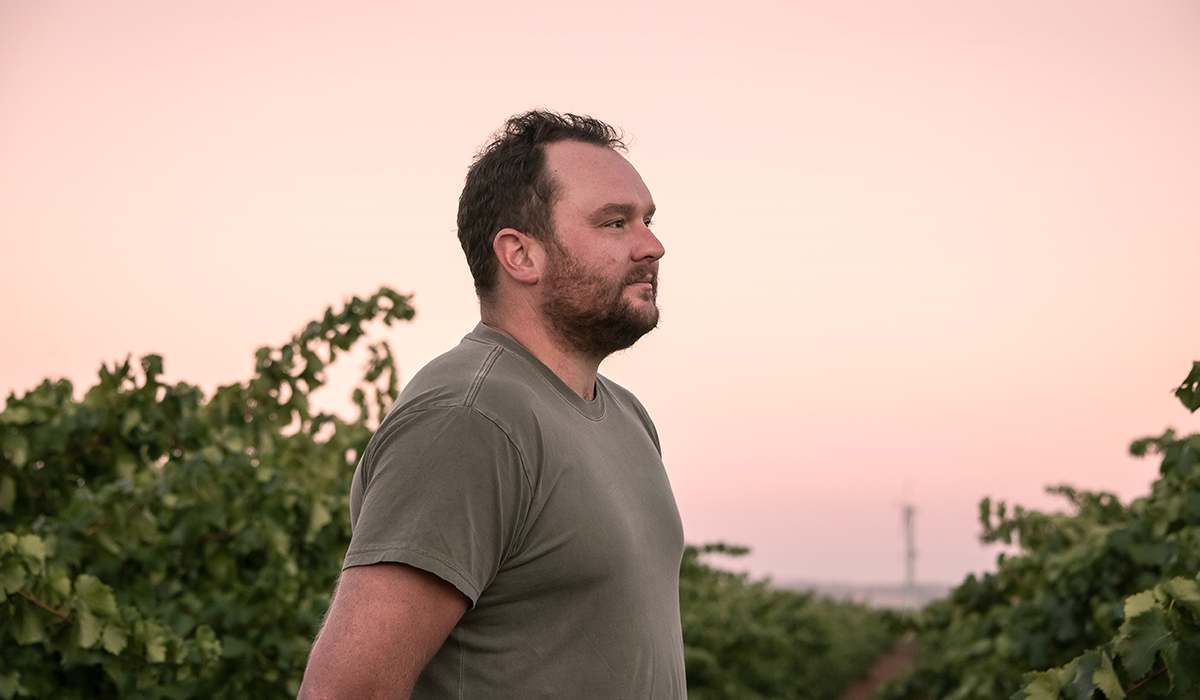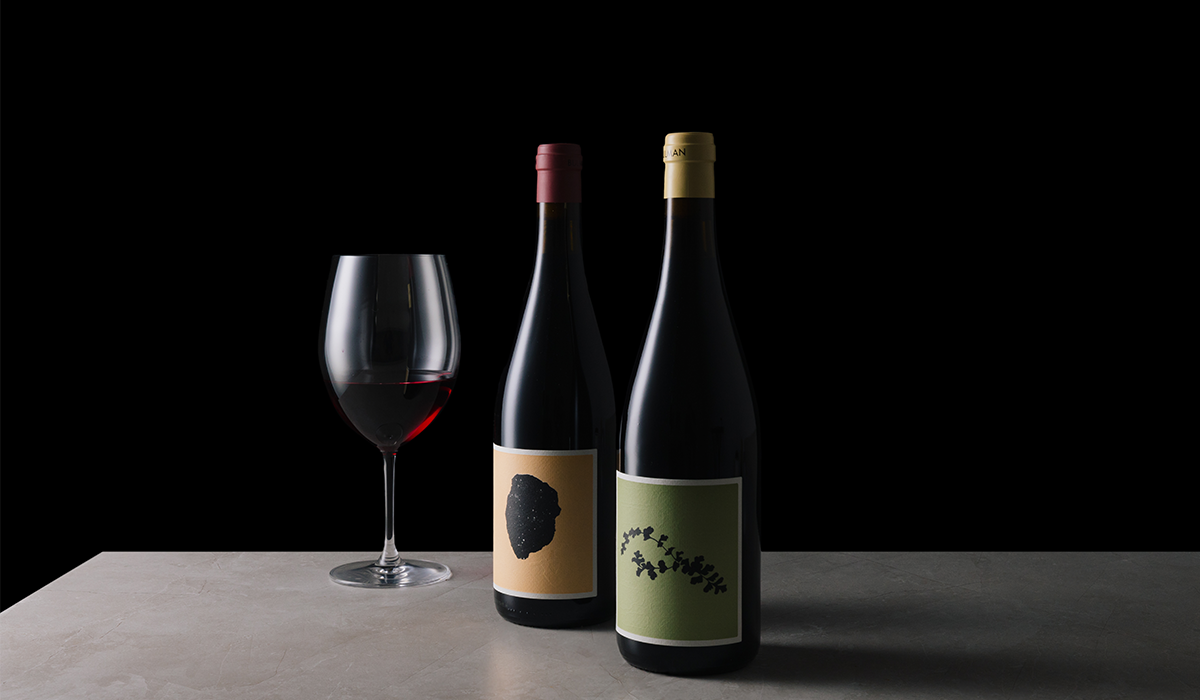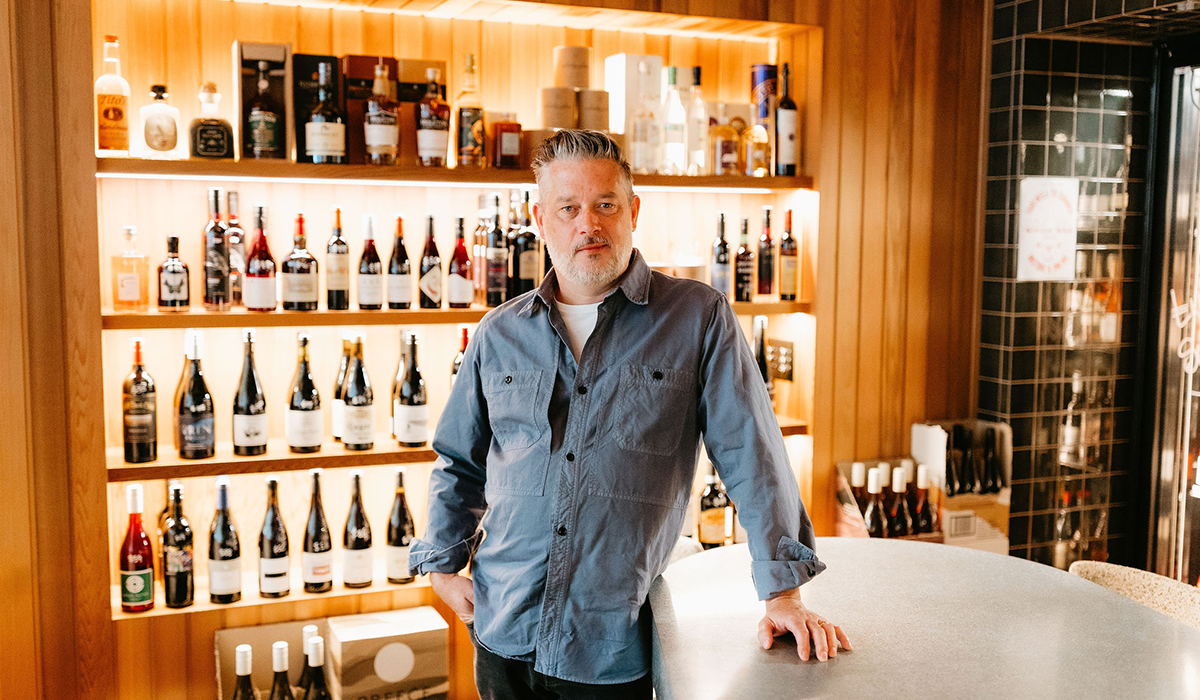Mark Bulman loves grenache. That’s not such a controversial statement these days. But Mark loved grenache when it was largely unloved, forlorn, and with many of the wines hard to embrace. A relic of fortified production, knotty vines were an antique clutter in vineyards, getting in the way of shiraz – the hero of Australian wine, emboldened by extravagant accolades either side of the new millennium.
It was his longest winemaking tenure that began to sketch out Mark’s future with the grape, leading to two just released and genuinely exciting grenache bottlings, one from the Eden Valley and the other arguably from our holy land for the grape – the sands of McLaren Vale’s Blewitt Springs. Those wines feel like a dazzling arrival, effortless statements of grape and place, but that ease belies the journey.
Having worked mainly in cool climates – across Australia, and in New Zealand and Germany – predictably with cool-climate varieties, a job offer in 2009 took him home, and to the dry and sunstruck Barossa, where, by his own admission, he found grenache by accident. That role was winemaker at Turkey Flat and, alongside a raft of traditionally styled reds, rosé was a key player – it still is.
 Mark Bulman.
Mark Bulman.
It was rosé that got him thinking. While he fine-tuned the rosé away from neon luridness and candy-scented lusciousness towards a rose-gold platonic ideal, with texture and mineral sapidity key palate pillars, it was the quality of site expression and fragrance that captivated him. Making grenache rosé in a very delicate and protective way suggested that by keeping oxygen to a minimum he would be able to make fragrant and elegant dry red wine from grenache.
“Having all those ferments going through the winery, and the delicate detail that I was seeing in grenache as opposed to shiraz...the opportunity for different shapes, different spectrums in terms of fruit and tannin development,” says Mark. “I could see it straightaway with grenache... It immediately drew me because it was like what I like to drink at home.”
At that time, the Barossa certainly wasn’t producing grenache of a finer ilk, and the Vale revolution was still in its infancy, though there still was inspiration from a master of the grape. “The only thing you could buy on the shelf was Pannell,” Mark says. “His grenaches already had that clarity and line of tannin in them. That was a great starting point for me...they were phenomenal.”
The success of Turkey Flat Rosé prior to Mark’s arrival meant he was seeing a lot of varied parcels, with some of the best fruit off the best sites coming his way. “There was so much potential, so I thought 'let’s start mucking around with it,'” he reflects. “The other beautiful thing was there was nothing to lose...nobody really cared about grenache, so I could have some fun.”
 Bulman's 2023 Gary’s McLaren Vale Vineyard Grenache and the 2023 Glen's Vineyard Eden Valley Grenache.
Bulman's 2023 Gary’s McLaren Vale Vineyard Grenache and the 2023 Glen's Vineyard Eden Valley Grenache.
That fun led to a Jimmy Watson for the 2016 Turkey Flat Grenache. The reputational accolade also came with a travel bursary. While Mark says that most winemakers probably end up having fun in Burgundy with the stipend, he decided to dig deeper, making a wine in Gigondas – maxing out the appellation rules at 80 per cent grenache – and quietly launching his eponymous label.
That time in the Southern Rhône, though, took him on a different path, helping to refine the critical elements of his approach today: early picking, anaerobic making and no oak. “How I go about making my wines is very different from what they do in the Rhône; there's a lot of richness there,” he says.
The starting point for great grenache is an exceptional site, Mark notes. That’s a cliché perhaps, but no less true. And for him, that is as much about fruit expression as it is tannin. “You only get good tannin from good vineyards,” he says, and this phenolic quality makes earlier picking possible. “As the tannins get riper, they become more diffuse, losing the fingerprint of the vineyard.”
From there, he keeps his ferments locked down. “It's far more delicate than pinot noir; pinot can handle oak and it can handle some oxygen, whereas I think grenache can handle zero,” Mark says, with this conclusion reached after slowly stepping down any oxidative processes over time. “I just can't have oxygen involved, otherwise you get a loss of detail.”
 Marcus Ellis.
Marcus Ellis.
The 2023 vintage represents the culmination of all that work, with the release of two wines from distinguished sites, both with extended macerations and both raised in sandstone amphorae. Mark rates the Stonegarden Vineyard as one of the finest, if not the finest, in the greater Barossa, with original plantings dating back to 1857.
That was familiar territory for Mark, with the second wine – from the Whaite family vineyard in Blewitt Springs – a new adventure, and one he is still wrapping his head around. Heady with spice, it’s the wine he says keeps unfurling, revealing more layers. “I love it,” he says. “I drink that much of it at home!”
From a quality and site-reflective perspective, there’s nothing between them. They are as equal in those categories as they are different in character, bound by the clarity of expression that will no doubt be the Bulman signature for many vintages to come. Excitingly, they also further populate the Australian grenache landscape, which is unarguably world class.
“We can really stand behind grenache and be really proud,” Mark concludes. “We’ve got proper history and really good sites, and really good winemaking... The direction of Australian winemaking with grenache at the moment is a unique path, and it’s differentiating us from the rest of the world.”